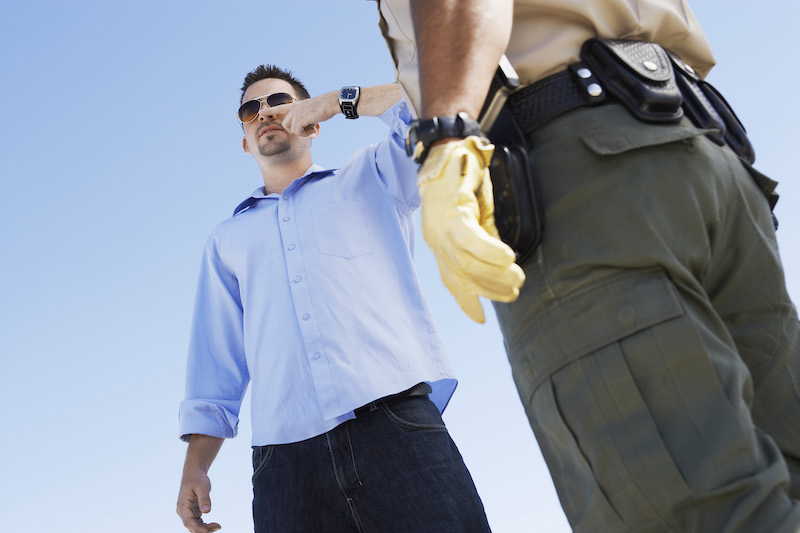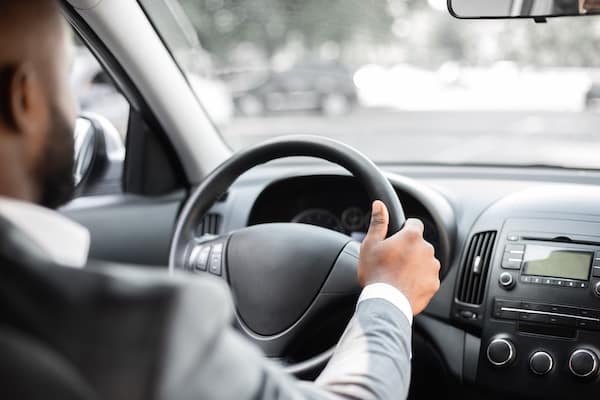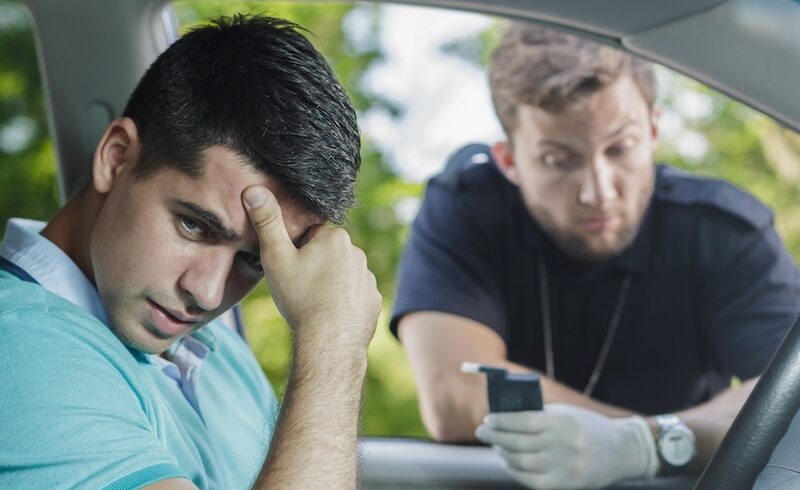
It may surprise you to know that field sobriety tests only have 66-77% accuracy, and the majority of DUI arrests in Illinois get based on field sobriety tests.
Yet only 77% of horizontal gaze nystagmus tests, 68% of walk-and-turn tests, and 65% of one-leg-stand tests are accurate.
This begs the question, could you fail one of these tests even if you haven’t been drinking any alcohol?
Unfortunately, it is possible in certain circumstances. Let’s take a look how.
The Field Sobriety Test
Field sobriety tests get used, along with breathalyzer tests, when drivers become suspected of driving while intoxicated from drinking or using drugs. Refusing to submit to the test can get used as evidence against you.
There are three main elements to a field sobriety test. In the horizontal gaze nystagmus test (HGT), the officer will move their eyes, a flashlight, or a pen, from side-to-side, and ask you to follow it with your gaze.
If you are sober, your eyes will be able to follow the object steadily. If a person is intoxicated, they will not be able to follow the object smoothly. The side-to-side gaze will include significant jerking.
Those under the influence of alcohol have eyes that rotate at nearly every angle, and jerking will begin before the eyes are forty-five degrees from center.
In a walk-and-turn test, you will get requested to take nine steps in heel-to-toe style. At the end of your walk, you take a turn and walk back the same way.
Someone who is alcohol-impaired will be unable to follow directions. They may start the test before getting instructed to do so, or stop to regain their balance while walking.
Intoxicated folks might also step off the line or turn before they should. They could use an incorrect number of steps, or forget to touch their heels and toes together.
The final field sobriety test is the one-leg stand. With this assessment, you will be asked to stand on one foot, and hold the other foot six inches above the ground. The officer will then ask you to begin counting.
Your police offer will be looking for any swaying or using the arms for balance in this position. Intoxicated people will probably keep putting their hovering foot back down.
Getting Pulled Over
There is a chance that you could fail a field sobriety test without any alcohol consumption. However, a police officer will usually look for certain signs before pulling someone over with a suspicion of drunk driving.
Swerving, driving in the wrong direction, or driving extremely slowly are all red flags that will cause officers to pull your car over. Physical indications such as slurred speech, bloodshot eyes, and the smell of alcohol may lead them to administer field sobriety tests.
If you are involved in an accident, the police called to the scene might be looking for signs of intoxication. This is because many accidents get caused by impaired drivers. If they notice any physical indications, a sobriety test could be administered.
Reasons You Could Fail a Sobriety Test Sober
There is a very good chance that someone who fails all three parts of a field sobriety test is intoxicated. However, that is not always the case. The test is subjective, and one officer’s score may not match another’s.
You might be the kind of person who is prone to anxiety. Getting pulled over by a police officer’s flashing lights, and asking to perform a series of tests, could make you extremely nervous.
It could also distract you and prohibit you from listening to directions. Officers can use your lack of listening against you.
Some adults also may have medical balance problems. These could get caused by ear infections, a head injury, low blood pressure, or inner ear and brain problems.
Peripheral neuropathy is a set of conditions that happen when the nerves that carry messages to and from the spinal cord are damaged. This is common in diabetics, or in people undergoing medical treatments such as chemotherapy. Heart or seizure medications can also contribute to this condition.
Peripheral neuropathy can impair muscle movement and prevent normal feelings in the arms and legs. It could cause you to fail the one-leg or walk-and-turn tests.
The one-leg test can also be affected by spinal or circulation problems. Your height, weight, hip girth, and foot length can also cause you to drop your elevated foot.
What to Do
If you fail a sobriety test, the best thing you can do is contact an excellent attorney. You can begin by asking your friends and family for references. You can also read online reviews for defense attorneys in your area.
It is important that you feel comfortable with your attorney. They should be open to answering all of your questions, and at no point should you feel embarrassed or afraid to tell your attorney your side of the story.
Many law offices offer free consultations. It will not hurt your budget to talk to someone who can represent your side respectfully in a court of law. Many times, even a short conversation can help to ease your mind about the future.
Find the Right Attorney for Your Case
While it may seem difficult to believe, it is possible to fail a field sobriety test while you are completely sober. Anxiety, balance problems, medications, and other conditions can result in your being wrongfully accused.
If you come to the point that you have lost your Illinois Drivers License, contact our team to help! For a free consultation, contact us today.


